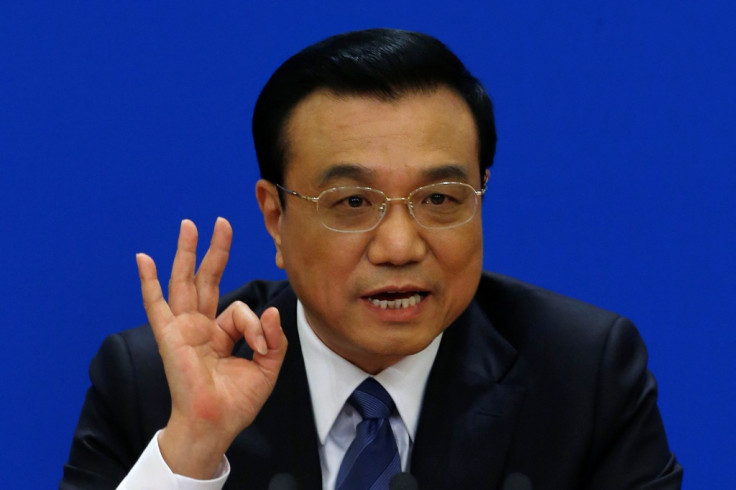Li Keqiang: China Willing to Accept Growth Below 7.5% for Quality and Efficiency

Chinese Premier Li Keqiang reiterated that his country is looking for qualitative growth, saying growth rate slightly higher or lower than 7.5% will be acceptable.
"Growth rate slightly higher or lower than 7.5% is acceptable, as long as our development creates jobs, boosts incomes, has quality and efficiency, favours energy savings and environmental protection, and is not an exaggeration and (is) real," Xinhua news agency quoted Li as saying at an economic symposium.
In the symposium about the country's current economic situation in Beijing, Li added that quality growth comes through innovation that can upgrade the economy. He also pledged to maintain China's growth target around 7.5% and inflation rate below 3.5%.
China would keep its targeted macro-control policies and allow the market to play a bigger role, along with simplified administrative procedures, according to Li.
He noted that China's current economic growth is stable, but the government must be more aware of difficulties, risks and downward pressures.
China's growth accelerated to 7.5% in the second quarter of 2014, after declining to 7.4% in the first quarter, according to data from the National Bureau of Statistics (NBS). Overall growth in the first six months was 7.4% year-over-year.
The growth rate was above analysts' expectations, indicating that the country is picking up from a growth slowdown on the back of a number of mini-stimulus measures.
China is the world's fastest-growing major economy with annual gross domestic product growth rates averaging 10% for the last 30 years.
However, its economic growth has slowed down recently due to increasing exposure to foreign markets. In 2013, the economy expanded 7.7%, the lowest pace in more than a decade.
In the first quarter, the economy expanded at a pace of 7.4%, the lowest in 18 months due to weak domestic and international demand, prompting Beijing to undertake a series of modest stimulus measures.
However, the leadership is willing to have a cut in growth rates for the sake of reforms. China wants its economic growth to be fuelled by domestic consumption rather than investment and exports.
© Copyright IBTimes 2025. All rights reserved.






















